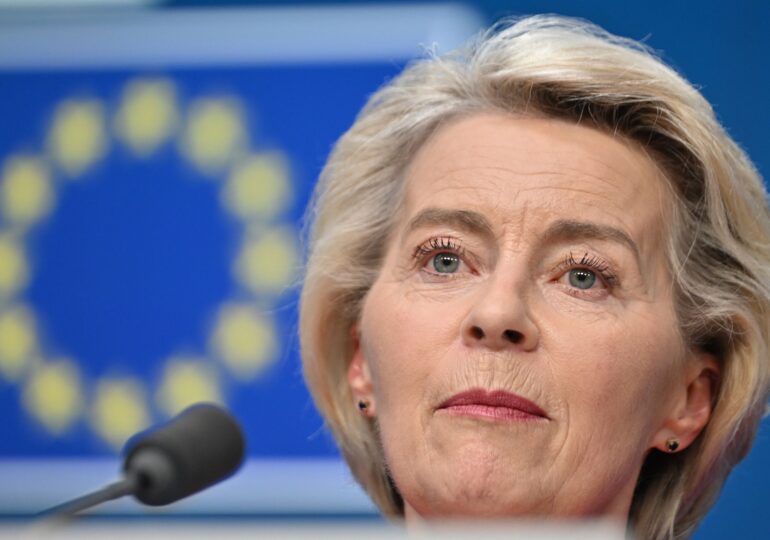Under the threat of an internal revolt, Ursula von der Leyen was forced to adjust the European Union’s multiannual budget plan.
The Commission President agreed to allocate more money to poor regions than initially intended, in an attempt to appease two commissioners at political extremes: Raffaele Fitto (Italian right) and Roxana Mînzatu (Romanian socialist), according to a document obtained by Politico.
Von der Leyen is in a delicate position: she must secure the support of the 27 European commissioners, the increasingly vocal Parliament, and national governments, which must approve the budget by the end of 2027.
According to two EU officials, the concession regarding maintaining financial support for disadvantaged regions currently ensures support within the Commission. "The regional dimension is not completely lost," said an EU official, speaking on condition of anonymity.
Step back from centralizing funds
Initially, von der Leyen proposed that central governments have more control over the approximately 400 billion euros allocated to regional development.
The argument: faster reforms, reduced bureaucracy. But critics warned that such a move would marginalize poor regions and exacerbate imbalances. After pressures from various directions, the Commission reconsidered its plan.
Cohesion policy, introduced in the '70s, has been a central element in reducing disparities between rich and poor regions. Abandoning this principle would have been a major break. "They are making only minimal concessions, but their initial ideas were so unpopular that they had to give in," said Siegfried Mureșan, the EPP negotiator for the budget.
Commission maintains ESF after socialist pressure
One of the most important concessions obtained by social democrats was the retention of the European Social Fund (ESF), vital for the professional training of young people and the unemployed. Support for von der Leyen in the no-confidence motion in Parliament was conditioned on maintaining this program, according to Politico sources. Roxana Mînzatu, Romania's commissioner, was one of the main voices behind this request.
However, the Commission's project does not yet include a clear amount allocated to the ESF, which has generated dissatisfaction. "The socialists didn't win much," said a second EU official speaking on condition of anonymity.
Supporters of cohesion policy are calling for the preservation of the so-called "Berlin formula," which prioritizes fund allocation based on criteria such as population, regional GDP, and poverty rate.
Siegfried Mureșan warned: "We have not yet seen any viable and credible alternative to the Berlin formula. And we also know that attempts to modify it in the past have failed."
Berlin concerned about EU loans
Separately, Germany criticized the Commission for offering cheap loans to countries that spend beyond their agreed plans, fearing a dangerous precedent. "Debt instruments in the EU can only be an absolutely exceptional instrument in an acute crisis. A permanent debt instrument for general spending would be a red line for us," a German official conveyed.
A EU diplomat added: "It's like plugging one hole with another. This only leads to increased debt and further reduction of fiscal space."

